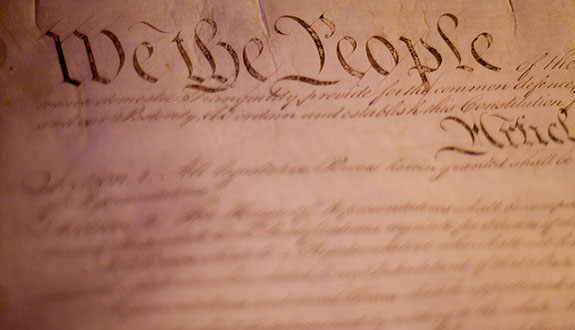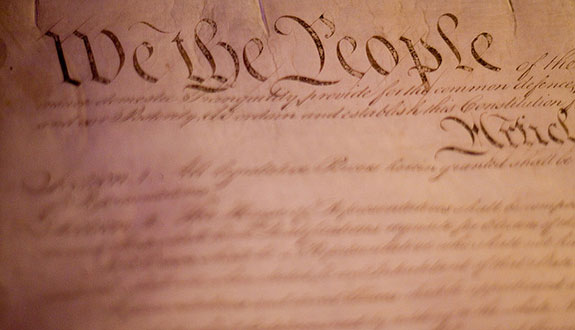Amazon Echo and the Fourth Amendment
- by
- Jan 10, 2017
- Legal Life, News
- Reviewed by: Matt Riley


Our generation is used to giving up control over vast amounts of personal information. From Facebook check-ins to cell site location information, the police have readily ascertainable digital footprints to track virtually all of our movements. The question, which the Supreme Court will likely have to address going forward, is how much digital information can be presented in court without violating either the Fourth Amendment’s protections against unreasonable searches.
Recently, the police seized this man’s Amazon Echo and they are seeking to acquire information the device may have potentially recorded in order to investigate a suspected murder. As noted above, this is a relatively unsettled and doctrinally thorny issue. I am going to provide a brief overview of the legal issues involved.
First and foremost, it is important to understand how the Fourth Amendment works. It protects against unreasonable searches and seizures. As you can imagine, the definition of all three of those words—unreasonable, search, and seizure—play a crucial role in the analysis. If it is determined that an action constitutes a search, then the police are required to get a search warrant (unless one of the expansive warrant exceptions applies). In order to get a warrant, they have to show probable cause before an impartial magistrate, or any search is deemed unreasonable.
In recent cases, courts have often avoided deciding Fourth Amendment issues in the context of developing technology by determining that a search is not “unreasonable.” As noted above, this is done by applying a warrant exception. For example, in the case of cell site location information, decisions have relied on the “knowing exposure” or “third-party” doctrine to skirt the central question. Essentially, if someone knowingly exposes an object—whether it is trash on the sidewalk or cell-phone data—to even one member of the public or if someone willingly shares information with someone else, then it is no longer unreasonable for the police to search that object. This doctrine has been applied to searching e-mails on a server and to looking into banking records. Thus, under the facts here, any decision could simply turn on the fact that the Echo recordings are knowingly shared with Amazon, and the police aren’t doing anything wrong by searching through the data.
On the flip side, there are arguments to prevent the application of a warrant exception. In general, according to the Court in Katz, the test for whether or not the Fourth Amendment’s protections apply is whether there is a reasonable expectation of privacy that society is prepared to recognize. Within the home, the expectation of privacy is traditionally protected very zealously by the court. As a result, if a court actually moved past the issue of knowing exposure/third-party doctrine, then it is likely that recordings of a conversation within a home would receive a high-degree of protection. Precedent also weighs in favor of potentially denying a warrantless search of the recordings. The Sixth Circuit has ruled that it is unconstitutional to compel a commercial ISP to turn over e-mails without a warrant. The decision there is largely analogous to the issue of whether Amazon can be forced to turn over the Echo data.
The issue of whether Echo recordings can be searched is indicative of a larger trend in Fourth Amendment law. Personally, I think the Court needs to address these types of issues—and find in favor of individual privacy rights—to protect against invasive actions on the part of the police. In the digital age, there needs to be a bulwark against the creation of a surveillance state.
Search the Blog

Free LSAT Practice Account
Sign up for a free Blueprint LSAT account and get access to a free trial of the Self-Paced Course and a free practice LSAT with a detailed score report, mind-blowing analytics, and explanatory videos.
Learn More
Popular Posts
-
logic games Game Over: LSAC Says Farewell to Logic Games
-
General LSAT Advice How to Get a 180 on the LSAT
-
Entertainment Revisiting Elle's LSAT Journey from Legally Blonde








